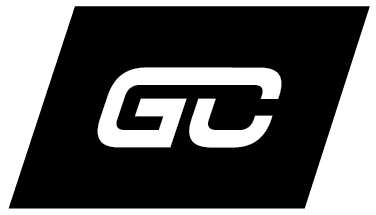No Time For The Future
The delusion pro athletes have no spare time.
Do you know why athletes don’t have great opportunities when they are done playing pro sport? It is because they have no spare time to explore other options while they are playing. Right?
No. Fortunately, much like the statement that 70% of professional athletes are broke and divorced within three to five years of their professional career ending (again, ‘great work’ Pablo S. Torre), is a myth!
Naturally, many young professional athletes genuinely feel like they have no free time. That is understandable. They are trying to establish themselves in a league or organization. They are trying to learn the ropes of a new job and in reality, a new lifestyle. Young athletes view their existence as being focused wholly and entirely on gearing their bodies and minds to perform at the highest possible level on a consistent basis, so they can stay where they are.
The challenge becomes, once an athlete has established themselves, and understands the rhythm of the job and lifestyle, can they shake off the myopic view that they have no spare time?
Sadly, not as often as one would hope. Taking time to build relationships outside the game, pursue a degree, explore a hobby, engage in philanthropic interests or participate in business interests tend to get shunted to the side with the catchall excuse, 'I don't have the time.'
Part of this is systemic. Players don't want to be called out for not being focused on their playing careers for fear that a bad performance gets them labeled as ‘distracted’ or ‘disinterested’ or not ‘all in’.
And let’s be honest, the stakes are high. The second contract in most sports means life-changing money. Players don't want to mess it up either by appearing distracted or feel that they are distracting themselves. Even if you throw the money aside for a moment and remember that many athletes are living their dream, they have a real fear, rational or otherwise, that looking beyond it may somehow cause the 'dream bubble' to pop.
But let’s come back to reality. An evidenced based approach is making it more clear that engaging in activities outside of the game makes athletes better. Again, most athletes don’t realize the missed opportunity until they are locked out of the locker room.
A former player related to me his poor use of time while he was playing professional sports, “the amount of time I pissed away, is depressing. I had so much spare time I could have been a fucking doctor if I had taken courses during my career."
Maybe that's a stretch, or perhaps not, look at Kansas City Chief's lineman, Laurent Duvernay-Tardif or should I say, Dr. Laurent Duvernay-Tardif.
When you talk to professional athletes, in the vast majority of cases, they tend to agree that they have a significant amount of spare time. Counter-intuitively the majority of that additional time is available in-season. In the off-season, players are typically overrun with family and friends, weddings and merely decompressing from a long season, but even then most players agree that a small percentage of time exists to explore outside interests. Granted this changes from sport to sport and season to season, but on the whole, athletes have the time to be proactive and leverage their situation, so they not only improve their long game (career wise) but they can impact their ability to perform.
Older players who have been around longer and understand the ebbs and flows of a season, have told me directly, the idea that athletes have no spare time is a total fallacy. It dawns on players (in most cases) that spending all their downtime watching movies, shopping at the mall, playing video games, going to the mall, playing cards, hanging out at the mall or just driving around isn't necessarily the most productive use of one's time. As one player once noted, 'There really are only so many times you can go to the mall or watch Sports Center."
The reality; not only do players have the time if they were to use their spare time more effectively, but they would also be better players. An hour a week for the duration of your professional sports career may not earn you a degree and won’t allow you to become a doctor, but it can create fantastic opportunities that you can pursue today and through all of your tomorrows.
Game Change was founded in 2011 to serve and enhance the athlete development needs of major professional and elite sport organizations and athletes. Game Change specializes in customized research and assessment services, the development of applied interventions and resources designed to provide long-term positive outcomes for organizations and individual athletes. Game Change believes strongly in sport as a catalyst for societal change and adheres to the philosophy of ‘changing the world one athlete at a time’.




